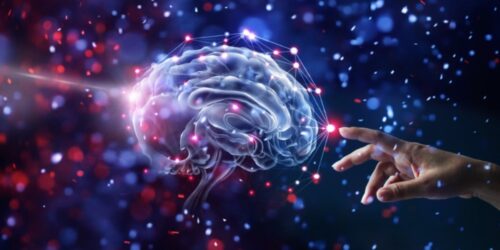Harnessing Innovation in Addiction Therapy

The advent of personalized medicine is revolutionizing the approach to addiction therapy. By understanding your unique genetic makeup, therapists can tailor treatments that are more effective and have fewer side effects. This approach promises a more individualized treatment plan, potentially increasing the chances of successful recovery.
Virtual Reality (VR) therapy is emerging as a cutting-edge tool in treating addiction. By immersing you in controlled environments, VR can simulate real-life situations that trigger cravings, allowing you to learn and practice coping strategies in a safe space. This innovative approach could revolutionize the way therapists address triggers and relapse prevention.
Artificial Intelligence (AI) and machine learning are being harnessed to predict relapse risks and personalize treatment plans. By analyzing patterns in your behavior and responses, these technologies can provide insights that help in creating more effective and adaptive addiction treatment strategies.
Psychedelic-assisted therapy, using controlled doses of substances like psilocybin or MDMA, is a controversial yet promising area in addiction treatment. Research suggests these substances can offer profound psychological insights and emotional healing, potentially resetting your relationship with addictive substances.
Neurofeedback training, a technique that teaches you to control your brainwave patterns, is showing potential in addiction treatment. By gaining control over certain brain functions, you can learn to manage cravings and emotional responses more effectively, offering a new pathway to recovery.
Effective Coping Strategies – Navigating the Path to Recovery:
In the journey of recovery, understanding effective coping strategies is pivotal. Topping the list are active coping, positive reframing, instrumental support, religion, and acceptance. Active coping involves problem-solving, seeking information or social support, seeking help, and changing one’s environment. These strategies are essential components that align with the evolving landscape of addiction science and the potential for revolutionary treatments.
Key Recovery Skills – Building a Foundation for Rehabilitation:
Recovery after addiction treatment necessitates the development of life skills. Communication and interpersonal skills, creative and critical thinking, problem-solving, effective decision-making, self-awareness, assertiveness, and self-control form the foundation. As we explore emerging treatments in addiction science, these skills become crucial elements in optimizing the impact of revolutionary therapies.
Stages of Change in Recovery – A Dynamic Process:
The Transtheoretical Model (TTM) outlines the dynamic stages individuals move through in recovery: precontemplation, contemplation, preparation, action, maintenance, and termination. Understanding this dynamic process aligns with the cutting-edge treatments discussed in addiction science, highlighting the importance of tailoring interventions based on an individual’s stage of change.
The 4 C’s of Addiction Cycle
To distinguish addiction from other neurological disorders, experts emphasize the presence of four unique factors known as the 4 C’s: compulsion, craving, consequences, and control. These factors, central to addiction, align with the innovative approaches explored in the field of addiction science, offering insights into the distinct nature of addiction and potential avenues for transformation.
Innovative Therapies on the Rise
Recent statistics indicate a notable increase in the adoption rates of cutting-edge addiction therapies. Studies reveal that innovative treatments are gaining traction within the medical community, with a significant percentage of practitioners incorporating these advancements into their therapeutic approaches. The success metrics associated with these treatments showcase promising outcomes, paving the way for a transformative shift in addiction therapy.
Patient Satisfaction and Adherence
One key indicator of the impact of emerging addiction treatments lies in patient satisfaction and adherence rates. Current statistics underscore a positive trend, with a substantial portion of individuals expressing satisfaction with innovative therapies. High adherence rates suggest that patients are actively engaging with and benefiting from these treatments, indicating a favorable response within the patient population.
Reduction in Relapse Rates
Recent studies examining the effectiveness of cutting-edge addiction therapies highlight a significant reduction in relapse rates. Comparative analyses indicate that individuals undergoing innovative treatments experience lower relapse rates compared to traditional therapeutic approaches. This encouraging statistic underscores the potential of advanced therapies to contribute to long-term recovery and sustained well-being.
Improved Neurobiological Markers
Advancements in addiction science are accompanied by a focus on neurobiological markers to quantify treatment impact. Recent statistics demonstrate that individuals participating in cutting-edge therapies show improvements in key neurobiological markers associated with addiction. These findings contribute to a growing body of evidence supporting the efficacy of these treatments in addressing the underlying neural mechanisms of addiction.
Cost-Effectiveness and Healthcare Resource Utilization
Understanding the economic implications of emerging addiction treatments is essential. Statistics reveal that innovative therapies demonstrate cost-effectiveness and efficient healthcare resource utilization. By optimizing treatment outcomes and reducing the burden on healthcare systems, these advancements not only benefit patients but also contribute to more sustainable and economically viable addiction therapy practices.






